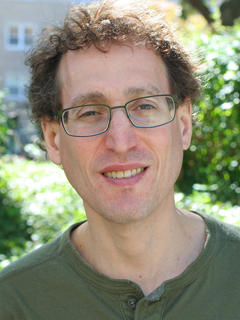Alumni Profile: Kari Neumeyer (Medill ’01)
Northwestern alum Kari Neumeyer tells stories of the ecosystem management practices of Indigenous tribes and governmental agencies in the state of Washington
New Study Removes Roadblock to Climate Change Awareness

Discussions on climate change can move people. Some to the left. Some to the right. The topic is now widely recognized as a polarizing issue by social scientists. It is no longer believed that someone’s position can always be affected by the presentation of scientific fact alone. Rather, preceding scientific information with recognition of someone’s political identity may open doors for deeper conversations, according to research published this month in the American Meteorological Society journal, Weather, Climate, and Society.
This is especially true when it comes to addressing a subgroup of individuals who believe that climate change is tied to a political conspiracy theory, says Jamie Druckman, co-principal investigator of the study, political science professor, and Associate Director of the Institute for Policy Research at Northwestern University.
“I’m really interested in how people process information and form their preferences,” says Druckman, whose attention turned to the challenge of climate change communications when he was asked to apply his expertise to the issue by the Institute for Sustainability and Energy at Northwestern (ISEN) in 2009. Since that time, the researcher, who is affiliated with the Ubben Program for Climate and Carbon Science, has been “building on a research agenda that looks at how different aspects of the message affect how particular groups of people move their opinions,” he says.
Druckman’s most recent work studies how to engage with people who are particularly hesitant to be open to scientific information. “A lot of researchers had documented that there is a group of people out there that believe that there is a conspiracy behind the scientific research on climate change, but nobody had explored if those people are movable in any fashion,” he says. “I was interested to see if you applied this basic concept from social psychology—where you are affirming their larger identity— if that opens them up to different types of information.”
The study came after Druckman completed research on how various climate change messages could move people toward believing in human-induced climate change and ultimately showing support for climate change policies. “One of the things that we found in that work was partisanship plays a pretty important role,” explains Druckman, whose paper on the issue appeared in the journal, Group Processes and Intergroup Relations, in early 2018.
Druckman decided to test his theory against some of the most challenging subjects available. His more recent study engaged a national sample of people through a survey that identified who was likely to fall into the subgroup of conspiracy theory supporters. It then posed information to them about climate change in one of two ways. Some received direct scientific fact while others were first told they were not alone in their support of such a theory before receiving the science messaging. Druckman found that, “If you affirm the identities of conspiracy theorists, basically telling them that lots of people believe in conspiracies, they then are more accepting of science information on climate.” It’s about how the study participants approach the information, says Druckman. By validating their identity first, he found they were less inclined to reject the scientific information in order to affirm their identity.
This work is unique in that it looks at precise aspects of messaging as it affects specific subgroups of the population. Although Druckman advises that this one study is not enough to develop a new model of climate change communication, he is optimistic that it is becoming possible to understand why people have various beliefs on climate change, despite the consensus on the issue by the scientific community. “I think it’s a hopeful route to take,” he says. “I don’t think we are stuck in this polarized situation necessarily if we can find ways to engage.”